| Prosser Facilities |

|
National Temperate Forage Legume Genetic Resources Unit
The USDA National Plant Germplasm System's temperate forage legume germplasm is managed by a team of scientists, technicians and support personnel of the Western Regional Plant Introduction Station in Pullman, WA. Germplasm seed is stored and distributed from the station's home on Washington State University (WSU)'s main campus in Pullman, WA. All regeneration, characterization and evaluation efforts are carried out at the worksite in Prosser, WA, collocated with WSU's Irrigated Agriculture Research and Extension Center. The project's mission is to develop a conservation program to help reduce the shrinking reservoir of biodiversity in forage legumes, crops such as alfalfa and clover that are important feed for livestock, particularly dairy animals.
Guided by the principles of conservation genetics, day-to-day activities focus on acquiring, maintaining, characterizing, evaluating, documenting and distributing a wide range of diverse germplasm. Diversity in the collections include crop wild relatives closely related to alfalfa, clover and trefoil to primitive farmer and heirloom varieties as well as more modern varieties obtained from around the world.
The project's emphasis is on:
? Developing a gene bank collection that effectively serves the dual purpose of conserving genetic diversity with meeting breeders and research scientist's current and future needs worldwide.
? Efficient and effective seed production of perennial temperate forage legume species using specialized procedures to maintain the genetic integrity of individual accessions during the seed increase process.
? Providing comprehensive, accurate and readily available information on the accessions in the collection, as well as assisting stakeholders in selecting germplasm from the collection and ensuring prompt delivery.
Yakima Valley Region
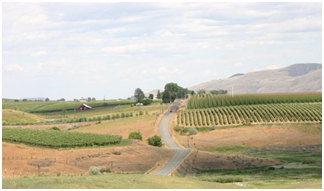
The Yakima Valley is in southeastern Washington, an agriculturally diverse region where over 200 different crops are grown on rich volcanic soils. The primary crops are wine and juice grapes and fruits such as cherries and apples. The dry hot climate is conducive to the production of forage legume seed.
Washington State University Irrigated Agriculture Research and Extension Center

The unit's worksite is co-located on the campus of the Washington State University (WSU) Irrigated Agriculture Research and Extension Center (IAREC) in Prosser, Washington. Established by legislative mandate in 1919, IAREC has grown from its original staff of two, an animal scientist and an agronomist, to 18 WSU scientists and faculty that conduct cutting edge research and extension projects on viticulture, tree fruits, and precision and automated agriculture. IAREC is also home to several other USDA-ARS research projects and a unit of the Washington State Department of Agriculture.
Roza Farm
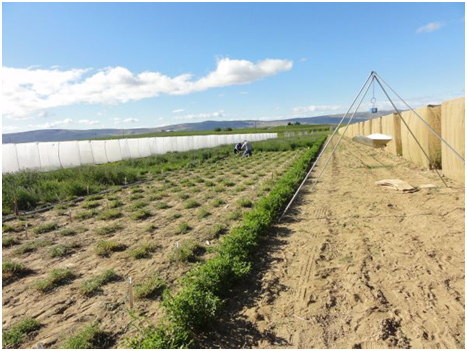
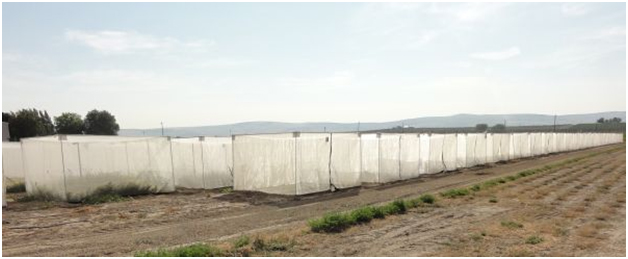
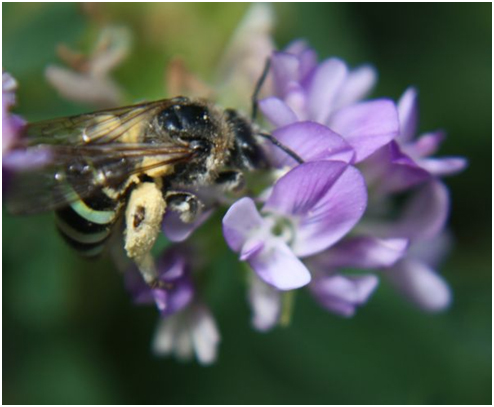
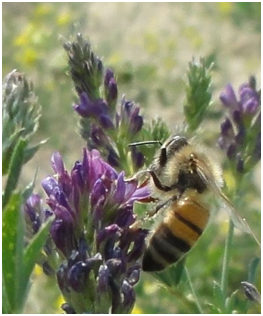
WSU's Roza research farm, a 320-acre site, is located 3 miles north of the main IAREC campus. A portion of the collection is grown out/regenerated each year using isolation cages and bee pollinators to replenish seed which is stored at the WRPIS Pullman seed storage facility. With the recent deregulation of genetically-engineered and low-lining alfalfa, the worksite is taking additional precautions to ensure the genetic integrity of the alfalfa collection is not compromised. New pollination cages have been purchased and a routine monitoring program is in place to help detect the presence of the transgene in the vicinity where the collection is regenerated.
